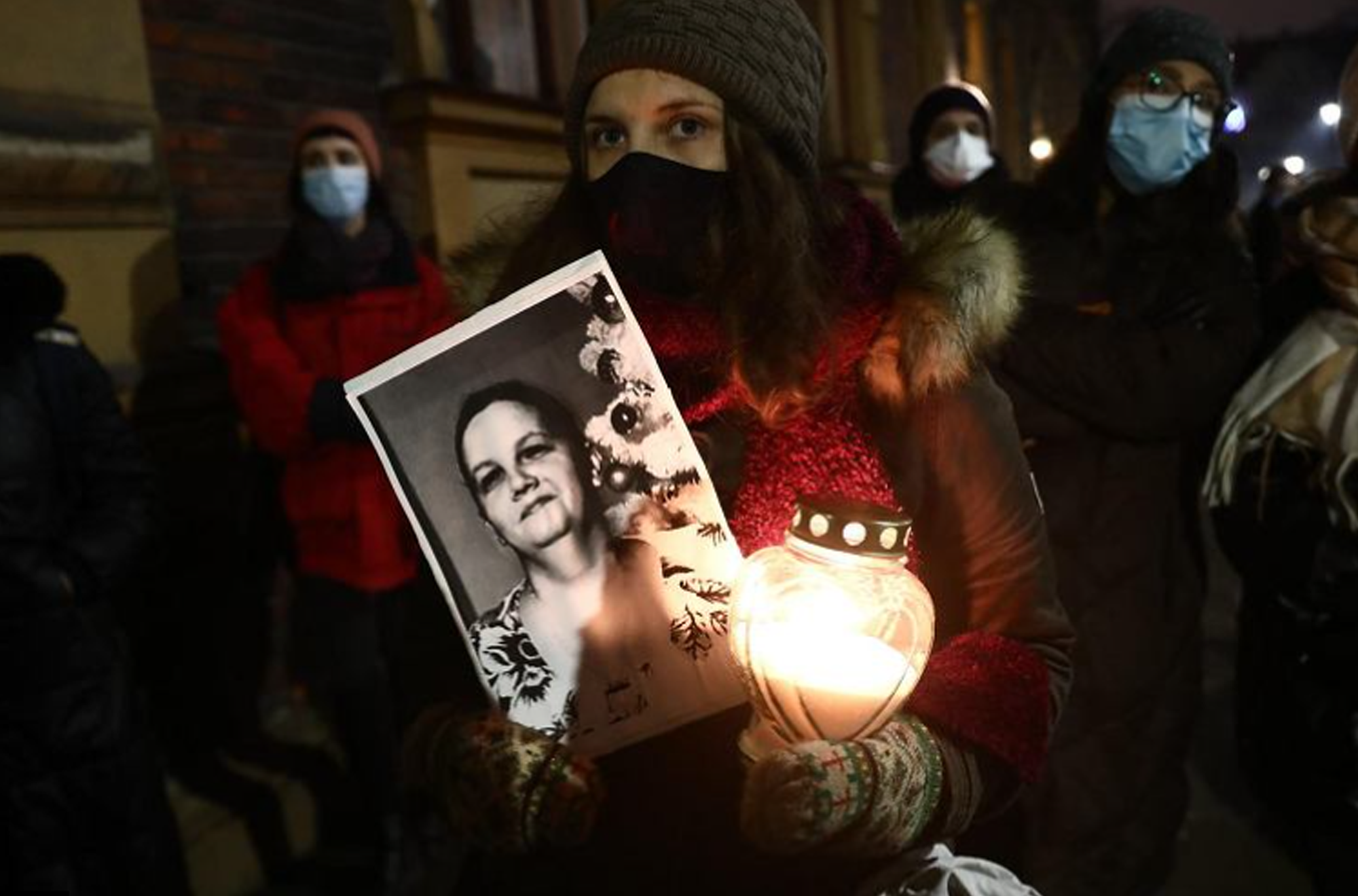
The headline says: “Agnieszka from Częstochowa is dead. The family accuses the hospital of delaying the removal of the dead fetuses”
Agnieszka, age 37, was in the first trimester of a twin pregnancy when on 21 December 2021, she was admitted to the gynaecology department of the Provincial Specialist Hospital in Częstochowa with nausea and worsening abdominal pains. On 23 December 2021, one of the fetuses died. Agnieszka carried this dead fetus in her womb for the next 7 days. It was said that the removal of the dead fetus was not allowed because of the abortion ban. The doctors waited for the other fetus to die spontaneously, which happened only on 29 December 2021. It took another two days before manual extraction of the pregnancy took place, on 31 December 2021. The hospital called in a priest to conduct a funeral for the dead fetuses.
By that time, the risk of sepsis was acknowledged and she was moved to the neurology department. But Agnieszka’s health continued to fail. She was transferred to the district hospital in Blachownia near Częstochowa the night of 24 January, reportedly because the provincial hospital had no intensive care beds available. She died there the next afternoon, on 25 January 2022, most likely of uterine sepsis, although that was not recorded in her file at the first hospital. She was the mother of three children.
Her relatives wrote: “She arrived there in good physical and mental condition. Many things were concealed, and there were words from the medical side about the suspicion of mad cow disease, insinuating that Agnieszka’s poor health was caused by an inadequate diet, rich in raw meat”.
However, it was reported on 27 January that she had also gone into the Municipal Complex Hospital in Częstochowa near the end of November 2021, but that on 3 December “she had left there in good general condition with recommendations for further treatment and control by the pregnancy pathology clinic. Both fetuses were alive at that time. Nothing indicated what started happening three weeks later.” However, it also emerged that in her three previous pregnancies she had had caesarean sections, which would have made this fourth, twin pregnancy a threatened pregnancy.
The Provincial Specialist Hospital issued a statement in which they said that after the death of the second twin, a decision to terminate the pregnancy was immediately made. They said: “Ultimately, pharmacological and mechanical induction of the miscarriage were performed, which lasted two days.” (sic) They said: the staff were guided only by “medical considerations and care for the patient and her children”.
“We appeal for justice and redress for the death of our wife, mother, sister and friend,” wrote her family in their appeal. “This is further evidence that the government has blood on its hands.”
On 26 January 2022, three evenings of candle-light protests were called by the Women’s Strike. That evening, demonstrations took place in several places in Poland, including in Krakow in front of the PiS office at ul. Retoryka (Photo above).
According to Gazeta Wyborcza, the Częstochowa prosecutor’s office had initiated an investigation into her death and would interview family members and hospital staff, as well as secure medical documentation and the results of a post-mortem. On 27 January, Gazeta Wyborcza reported that the team for medical errors at the Regional Prosecutor’s Office in Katowice had taken over the investigation, and that a national consultant in the field of gynaecology and obstetrics, Prof. Krzysztof Czajkowski, in an interview for “Wysokie Obcasy” announced there would be an inspection at the provincial hospital in Częstochowa and the facility in Blachownia. He said: “Today we do not know enough to decide what caused her death.”
SOURCES: Onet KOBIETA, by KBŁ, MarG, 26 January 2022 ; Notes from Poland, 26 January 2022 ; Gazeta Wyborcza.pl, by Marek Mamoń, 27 January 2022 + Photo by Jakub Porzycki / Agencja Wyborcza.pl



